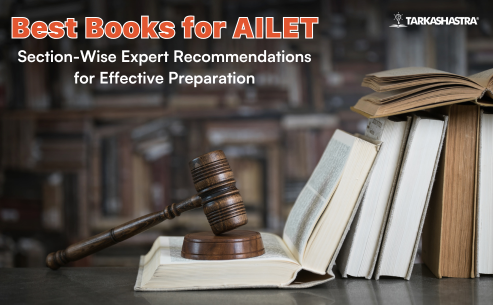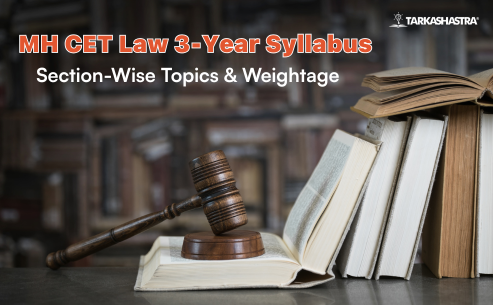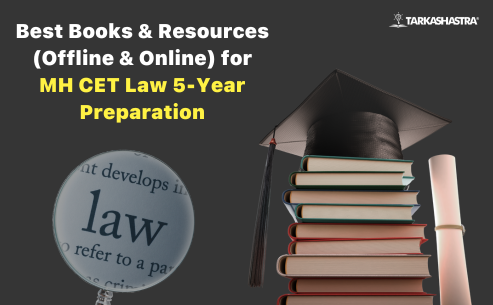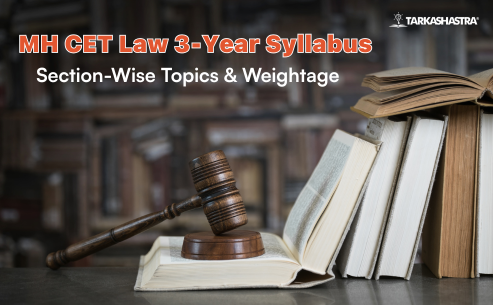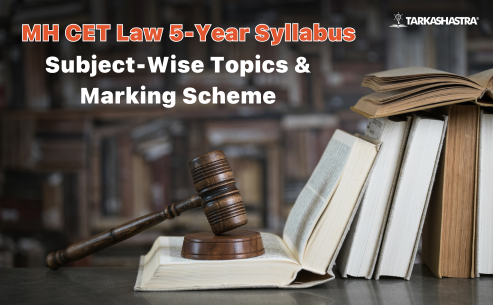Preparing for AILET 2026 (All India Law Entrance Test) is no ordinary task. Unlike CLAT, which opens doors to multiple NLUs, AILET is the exclusive gateway to National Law University, Delhi (NLU-D)—one of the most prestigious law schools in India.
With just 120 seats for BA LLB (Hons.) and limited intake of 81 seats for LLM, the level of competition is exceptionally high. Every mark counts, and the difference between a top rank and an average score often lies in choosing the right preparation resources.
Many aspirants make the mistake of hoarding too many books, creating confusion instead of clarity. The real key is to rely on quality over quantity—books that align with the latest AILET exam pattern and provide both conceptual clarity and practice opportunities.
The correct set of books not only strengthens your foundation but also saves valuable time by focusing only on what matters for the exam.
This blog brings you a section-wise list of the best books for AILET 2026—covering English Language, Current Affairs & General Knowledge, and Logical Reasoning. Along with trusted standard references, we’ll also highlight Tarkashastra’s curated exam-specific material, designed exclusively for law aspirants aiming at NLU Delhi.
By the end of this guide, you’ll know:
- Which books to pick for each section of AILET
- How to balance between reference books and exam-focused study material.
- Why are mock tests and previous year papers as necessary as theory books?
Why the Right Books Matter in AILET Preparation
AILET is not a general aptitude test—it is a reading- and reasoning-intensive law entrance exam where precision matters as much as speed. With 150 questions in just 120 minutes and negative marking (–0.25 per wrong answer), there is no room for guesswork or shallow preparation. That’s why choosing the correct set of books and resources is a make-or-break factor in your journey.
Here’s why selecting the right books is crucial:
| Reason | How It Helps in AILET |
| Targeted Content | Books aligned to AILET’s structure help you focus only on what matters—RC passages, current affairs, and reasoning, instead of wasting time on irrelevant topics like advanced math. |
| Conceptual Clarity | Good resources break down tricky concepts (critical reasoning, grammar, legal GK) into easy steps, ensuring you don’t just mug up but understand logically. |
| Practice Opportunities | Standard books + mocks provide exposure to diverse question types, strengthening accuracy and boosting speed under exam conditions. |
| Time Management | Well-structured books allow you to solve questions with speed and precision—essential for AILET where you get <50 seconds per question. |
| Confidence Boost | When your prep is built on trusted resources, it reduces confusion and builds exam-day confidence. |
Expert Insight: Many aspirants waste months juggling 8–10 reference books, only to realise they never mastered even one. AILET toppers usually stick to a focused set of 3–4 key books, supplemented with mocks and monthly current affairs notes.
AILET 2026 Exam Pattern Snapshot (Quick Recap)
Before picking the best books, aspirants must have a crystal-clear idea of the AILET 2026 exam structure. Since Mathematics was removed post-2022 reforms, the exam now focuses entirely on English Language, Current Affairs & General Knowledge, and Logical Reasoning.
Here’s a quick breakdown of the pattern:
| Section | No. of Questions | Marks | Weightage |
| English Language | 50 | 50 | ~33% |
| Current Affairs & General Knowledge | 30 | 30 | ~20% |
| Logical Reasoning | 70 | 70 | ~47% |
| Total | 150 | 150 | 100% |
Marking Scheme
- +1 mark for every correct answer.
- –0.25 mark for every incorrect answer.
- 0 mark for unattempted questions.
Key Insights
- Logical Reasoning is the game-changer → Nearly half the paper (47%).
- English acts as a stabiliser → Strong RC and vocab boost overall attempts.
- GK & Current Affairs are quick boosters → High accuracy, low time-consuming.
Understanding this distribution ensures you choose books smartly, focusing on reasoning-heavy practice while balancing English comprehension and GK updates.
Best Books for AILET English Language (50 Marks)
The English Language section of AILET 2026 carries 50 questions (~33% weightage). It primarily tests your reading comprehension, grammar usage, and vocabulary skills. Unlike rote grammar drills, the exam focuses more on whether you can read, interpret, and analyse passages quickly and accurately—a skill crucial for law school.
Key Areas in AILET English
| Topic | What to Expect | Importance |
| Reading Comprehension | Fact-based, inference-based, tone-based questions from passages | ⭐⭐⭐⭐⭐ (High) |
| Vocabulary | Synonyms, antonyms, idioms, one-word substitutions | ⭐⭐⭐⭐ (Moderate) |
| Grammar & Usage | Sentence correction, error spotting, fill in the blanks | ⭐⭐⭐⭐ (Moderate) |
| Para Jumbles | Arrange jumbled sentences into a logical order | ⭐⭐⭐ (Low–Moderate) |
| Figures of Speech & Analogies | Similes, metaphors, contextual analogies | ⭐⭐ (Low) |
Best Books for English Preparation
- Word Power Made Easy – Norman Lewis
- The go-to book for strengthening vocabulary.
- Builds word roots, meanings, and usage systematically.
- High School English Grammar & Composition – Wren & Martin
- Perfect for brushing up on grammar fundamentals.
- Covers sentence correction, error spotting, and usage rules.
- Objective General English – S.P. Bakshi
- Great for practising exam-style questions.
- Covers grammar, vocabulary, and comprehension exercises.
- Tarkashastra AILET English Module (e-Book & Hard Copy)
- Specially designed for the AILET pattern.
- Includes reading comprehension drills, grammar rules with exercises, and a curated vocabulary bank.
- Saves time by focusing only on what’s relevant for AILET instead of generic content.
Preparation Tips for English
- Read editorials and opinion pieces daily from The Hindu or Indian Express.
- Practice at least 2 Reading Comprehension passages daily under timed conditions.
- Maintain a personal word bank and revise weekly.
- Focus on error spotting and grammar corrections, as these are quick and easy to score.
- Attempt para jumbles only if confident; don’t let them eat into your time.
Expert Insight: In AILET, RCs form the backbone of the English section. If you can master inference-based questions and vocabulary-in-context, you can easily cross 35+ marks in this section.
Best Books for AILET Current Affairs & General Knowledge (30 Marks)
The GK & Current Affairs section in AILET 2026 has 30 questions (~20% weightage). While the number of questions is fewer compared to English and Reasoning, this section is a rank booster because it requires very little time (10–15 minutes) and can be attempted with high accuracy if prepared smartly.
Key Areas in GK & Current Affairs
| Topic | What to Expect | Importance |
| Current Affairs (last 12–15 months) | National & international events, economy, sports, awards, policies | ⭐⭐⭐⭐⭐ (Very High) |
| Legal GK | Constitutional amendments, landmark judgments, bills & laws | ⭐⭐⭐⭐ (High) |
| Static GK | History, polity, geography, economy, environment | ⭐⭐⭐ (Moderate) |
| International Affairs | Summits, treaties, disputes, global organizations | ⭐⭐⭐ (Moderate) |
| Miscellaneous | Books & authors, science & tech, reports & rankings | ⭐⭐ (Low–Moderate) |
Best Books for GK & Current Affairs
- Lucent’s General Knowledge
- Great for covering static GK (history, geography, polity, science).
- Concise and factual.
- Manorama Yearbook
- Useful for broad coverage of events, national and international.
- Best for revision of yearly highlights.
- Pratiyogita Darpan / Competition Success Review (CSR)
- Focused on factual current affairs.
- Monthly issues help keep track of events in digestible formats.
- Tarkashastra Current Affairs Compendium + Legal GK Digest
- Designed only for AILET needs—filters irrelevant data and focuses on the last 12–15 months of updates.
- Includes Supreme Court judgments, constitutional amendments, essential bills, and exam-relevant international news.
- Saves time compared to bulky yearbooks.
Preparation Tips for GK & Current Affairs
- Dedicate 15–20 minutes daily to reading newspapers like The Hindu or Indian Express.
- Make short monthly notes for current affairs + legal updates.
- Revise static GK weekly instead of cramming at the last minute.
- Focus on legal current affairs—AILET often links general awareness with law.
- Maintain a timeline of events for the last 12–15 months.
Expert Insight: Toppers often score 25+ out of 30 in GK by following one newspaper daily + monthly compendium revision, instead of overloading themselves with multiple yearbooks.
Best Books for AILET Logical Reasoning (70 Marks)
Logical Reasoning is the most crucial section in AILET 2026, with 70 questions (~47% of the paper). It is the ultimate rank-decider, testing both analytical reasoning (puzzles, series, syllogisms) and critical reasoning (arguments, assumptions, cause-effect, inferences). Mastery here can push your score well above the cut-off.
Key Areas in Logical Reasoning
| Topic | What to Expect | Difficulty Level |
| Puzzles & Arrangements | Linear/circular seating, grouping, scheduling | ⭐⭐⭐⭐ Moderate–High |
| Series & Coding-Decoding | Number/letter patterns, symbol coding | ⭐⭐⭐ Easy–Moderate |
| Blood Relations | Family trees, coded relations | ⭐⭐ Easy |
| Direction Sense | Distance, movement, orientation | ⭐⭐ Easy |
| Ranking & Ordering | Position, order, hierarchy-based questions | ⭐⭐⭐ Moderate |
| Syllogisms & Venn Diagrams | Statement-based deductions | ⭐⭐⭐ Moderate |
| Assumptions & Conclusions | Identify hidden assumptions, logical outcomes | ⭐⭐⭐⭐ Moderate–High |
| Strengthen/Weaken Arguments | Support or weaken arguments logically | ⭐⭐⭐⭐ High |
| Cause & Effect | Logical correlations & implications | ⭐⭐⭐ Moderate |
| Statement & Inference | Drawing valid inferences | ⭐⭐⭐⭐ High |
| Critical Reading | RC-style passages with argument analysis | ⭐⭐⭐⭐ Moderate–High |
Best Books for Logical Reasoning
- Analytical Reasoning – M.K. Pandey
- Best for building conceptual clarity in puzzles, seating, and syllogisms.
- Highly recommended by AILET toppers.
- A Modern Approach to Logical Reasoning – R.S. Aggarwal
- Covers critical reasoning topics such as assumptions, conclusions, and arguments.
- Ideal for beginners and practice-heavy learners.
- Verbal & Non-Verbal Reasoning – R.S. Aggarwal
- Great for additional practice sets in analytical reasoning.
- Helps improve speed in solving routine reasoning questions.
- Tarkashastra AILET Reasoning Module
- Tailored to AILET’s actual paper pattern.
- Includes topic-wise drills, critical reasoning sets, and previous years’ solved AILET questions.
- Focuses on exam-relevant reasoning types instead of unnecessary ones.
Preparation Tips for Logical Reasoning
- Dedicate at least 50% of your preparation time to reasoning.
- Start with analytical reasoning basics → puzzles, seating, series.
- Gradually move to critical reasoning → assumptions, strengthen/weaken, cause-effect.
- Solve 2–3 reasoning sets daily under timed conditions.
- Practice previous years’ AILET papers to understand recurring question patterns.
- In the exam, attempt easy analytical sets first before tackling critical reasoning passages.
Expert Insight: Logical Reasoning is where toppers gain their edge. Even a 5–10 mark lead in this section can mean the difference between just clearing the cut-off vs. securing admission at NLU Delhi.
Mock Tests, PYQs & Sectional Practice Resources
While books build your conceptual foundation, it is mock tests and past year papers (PYQs) that convert preparation into exam-day performance. AILET is not just about what you know, but about how quickly and accurately you can apply that knowledge under strict time pressure.
Why Mocks & PYQs are Essential
| Resource | How It Helps |
| Previous Year Question Papers (PYQs) | Gives direct exposure to the actual difficulty level, question styles, and recurring topics. |
| Full-Length Mock Tests | Builds exam stamina and trains you to attempt 150 questions in 120 minutes. |
| Sectional Tests | Strengthens weak areas (e.g., RCs, puzzles, GK) without overwhelming you. |
| Performance Analysis | Identifies patterns in mistakes—concept gaps, silly errors, or time pressure issues. |
Recommended Practice Resources
- AILET Previous Year Papers
- Must solve at least the last 8–10 years to understand trends.
- Standard Mock Test Series
- Helps simulate the exam and manage sectional timing.
- Tarkashastra AILET Practice Advantage
- Full-Length AILET Mock Tests: Replicates exam difficulty, structure, and timing (2–4 PM).
- AI-Driven Analytics: Highlights accuracy, time spent per question, and weak areas.
- Sectional & Topic-Wise Tests: Enables targeted improvement.
- Solved PYQs: Builds familiarity with past exam tricks.
Preparation Tips for Practice
- Start with 1 mock per week in the initial months → increase to 3–4 mocks per week in the last 2 months.
- Maintain a mistake logbook to track recurring errors.
- Revise your mock test analysis more seriously than the mock itself.
- Attempt mocks in the actual exam time slot (2–4 PM) to build stamina.
Expert Insight: Many aspirants spend months on theory but skip mocks until the last minute. Toppers, on the other hand, attempt 30+ mocks and devote equal time analysing them—this single habit gives them a 10–15 mark advantage in the final paper.
How to Choose Between Generic Books vs Exam-Specific Resources
One of the biggest dilemmas AILET aspirants face is whether to rely on popular generic books or invest in exam-specific resources. While both have their place in preparation, knowing how to balance them is the real key.
Generic Books
Strengths
- Build strong fundamentals (e.g., Norman Lewis for vocab, Wren & Martin for grammar).
- Offer large pools of practice questions.
- Suitable for multi-exam aspirants (AILET + CLAT + SLAT, etc.).
Limitations
- Not tailored to AILET’s unique pattern.
- May include irrelevant topics (like advanced math or verbal reasoning types not asked in AILET).
- Often bulky → risk of wasting time on non-essential chapters.
Exam-Specific Resources (e.g., Tarkashastra AILET Material)
Strengths
- Focus only on AILET-relevant topics → saves time.
- Include mock tests and PYQs modelled on actual exam difficulty.
- Cover legal GK updates, amendments, and judgments that generic books ignore.
- Provide curated strategies by mentors who know the exam closely.
Limitations
- Limited in scope → useful only for AILET (but that’s precisely the target here).
Balanced Approach for AILET 2026
| Resource Type | Best Use | Recommendation |
| Generic Books | Build foundation in English grammar, vocab, and reasoning basics. | Use 1–2 max per subject. |
| Exam-Specific Resources | Focus on AILET-style practice (RCs, critical reasoning, legal GK). | Use Tarkashastra modules, compendiums, and mocks. |
Expert Insight: Toppers don’t waste time juggling 10 different books. They master 3–4 high-quality references and then shift completely to AILET-specific mocks and revision material.
Common Mistakes Students Make with Books
AILET aspirants often fall into the trap of believing that “more books = better preparation.” In reality, this approach does more harm than good. Here are some of the most common mistakes students make when selecting or using books for AILET preparation:
1. Overloading with Too Many Resources
- Many students collect 8–10 books per subject, hoping to cover everything.
- Result: They end up half-reading all and mastering none.
- Fix: Stick to 1–2 standard books + AILET-specific material.
2. Ignoring Mock Tests
- Books give knowledge, but AILET is a speed + accuracy exam.
- Without timed mocks, students struggle to finish on time.
- Fix: Balance reading with weekly mocks & PYQs to simulate real conditions.
3. Not Aligning Book Practice with AILET Pattern
- Some generic books cover topics like Maths or irrelevant reasoning types, not tested in AILET.
- Fix: Always check the official syllabus & past papers before diving into a book.
4. Relying Only on Yearbooks for GK
- Yearbooks like Manorama are too bulky, covering irrelevant topics.
- Fix: Use them selectively, but rely on monthly compendiums + legal GK digests for focused prep.
5. Blindly Following Coaching Recommendations
- Some aspirants buy every book suggested by their peers or coaching classes.
- Fix: Prioritise curated resources designed for AILET (e.g., Tarkashastra study modules).
Expert Insight: Most students don’t fail AILET because of a lack of knowledge—they fail due to scattered resources and a lack of focused practice. Avoiding these mistakes can easily add 10–15 extra marks to your final score.
Expert Recommendations: Section-Wise Booklist (Quick Table)
Here’s a consolidated one-stop reference for the best books and resources for AILET 2026 preparation. This table balances standard reference books with Tarkashastra’s exam-specific study material to ensure maximum efficiency.
| Section | Standard Books | Tarkashastra Advantage |
| English Language (50 Marks) | – Word Power Made Easy – Norman Lewis – High School English Grammar & Composition – Wren & Martin – Objective General English – S.P. Bakshi | Tarkashastra AILET English Module → RCs, vocab drills, and grammar exercises designed on AILET’s latest pattern |
| Current Affairs & GK (30 Marks) | – Lucent’s General Knowledge (Static GK) – Manorama Yearbook – Pratiyogita Darpan/CSR | Tarkashastra Current Affairs Compendium + Legal GK Digest → concise 12–15 months’ updates, judgments & amendments |
| Logical Reasoning (70 Marks) | – Analytical Reasoning – M.K. Pandey – A Modern Approach to Logical Reasoning – R.S. Aggarwal – Verbal & Non-Verbal Reasoning – R.S. Aggarwal | Tarkashastra Reasoning Module → topic-wise drills, critical reasoning sets, and solved AILET PYQs |
| Practice & Mocks | – Previous Year Papers (last 8–10 years) – Any good mock series | Tarkashastra Full-Length AILET Mocks + AI-driven analytics + sectional tests replicating 2–4 PM slot |
Key Insight: Use generic books for building basics, but switch to AILET-focused resources (like Tarkashastra) for exam conditioning and high-yield practice.
Final Word on Books for AILET 2026
When it comes to AILET 2026 preparation, the quality of resources you choose is far more critical than the number of books you collect. Standard references like Norman Lewis, Wren & Martin, Lucent’s GK, and M.K. Pandey is excellent for building a solid base, but they must be paired with exam-focused resources that reflect the latest AILET pattern.
This is where Tarkashastra’s curated study material makes a difference. Instead of overwhelming aspirants with bulky yearbooks or irrelevant reasoning topics, it delivers precisely what AILET asks for—concise English drills, current affairs compendiums, legal GK digests, reasoning modules, full-length mocks, and performance analytics.
The innovative approach is simple:
- Use 1–2 standard books per subject for basics.
- Rely on AILET-specific material for precision and exam conditioning.
- Balance theory with mock tests and PYQs to sharpen speed and accuracy.
Key Takeaway: Success in AILET isn’t about how many books you read, but how well you master a few high-quality resources and practice them consistently.
If you’re aiming for NLU Delhi, make your preparation sharper with Tarkashastra’s AILET 2026 study resources, designed to cut the noise and help you focus on what truly matters.
FAQs on Best Books for AILET 2026
1. Which book is best for vocabulary in AILET 2026?
The best book for vocabulary is Word Power Made Easy by Norman Lewis. It helps build word roots, meanings, and usage systematically, which is highly useful for comprehension and context-based questions in AILET.
2. Is Wren & Martin still helpful for AILET English preparation?
Yes, High School English Grammar & Composition by Wren & Martin is excellent for brushing up on grammar rules. It covers sentence correction, error spotting, and usage—all of which are tested in AILET.
3. Which is the best book for AILET Reading Comprehension practice?
Apart from newspapers and editorials, the Tarkashastra AILET English Module offers reading comprehension drills modelled on past AILET papers, making it one of the most focused resources.
4. Should I follow Pratiyogita Darpan for AILET GK preparation?
Yes, monthly editions of Pratiyogita Darpan or CSR help keep up with current factual affairs. However, aspirants must filter the information and focus on law-related updates.
5. What is the best book for AILET Logical Reasoning basics?
Analytical Reasoning by M.K. Pandey is ideal for conceptual clarity in puzzles, seating arrangements, and syllogisms. It’s a favourite among AILET aspirants.
6. Which book is suitable for AILET Critical Reasoning practice?
A Modern Approach to Logical Reasoning by R.S. Aggarwal is one of the most recommended books for assumptions, strengthen/weaken arguments, and inference-based reasoning.
7. Do I need to solve Verbal & Non-Verbal Reasoning by R.S. Aggarwal for AILET?
Yes, but selectively. The book has vast content, so focus only on topics like series, coding, blood relations, and direction sense that match AILET’s pattern.
8. What is the best AILET-specific resource for Logical Reasoning?
The Tarkashastra Reasoning Module is exam-focused, covering puzzles, critical reasoning, and solved AILET PYQs. It saves time by filtering irrelevant reasoning types.
9. Which is the best source for last-minute AILET revision?
The Tarkashastra Current Affairs Compendium and Reasoning Module are ideal for last-minute revision, as they condense high-yield topics into exam-focused notes.
10. Which book is best for AILET Current Affairs one-liners?
Pratiyogita Darpan and CSR provide factual one-liners useful for quick revision. But Tarkashastra’s monthly compendiums filter these specifically for AILET relevance.
11. Is Word Power Made Easy enough for AILET vocabulary?
Yes, it builds a strong base for vocabulary. However, pair it with daily editorial reading and flashcards to master usage and context-based questions.
12. Which is the best daily newspaper for AILET preparation?
The Hindu and Indian Express are the top choices, as they cover editorials, legal issues, and national/international affairs relevant to AILET.

